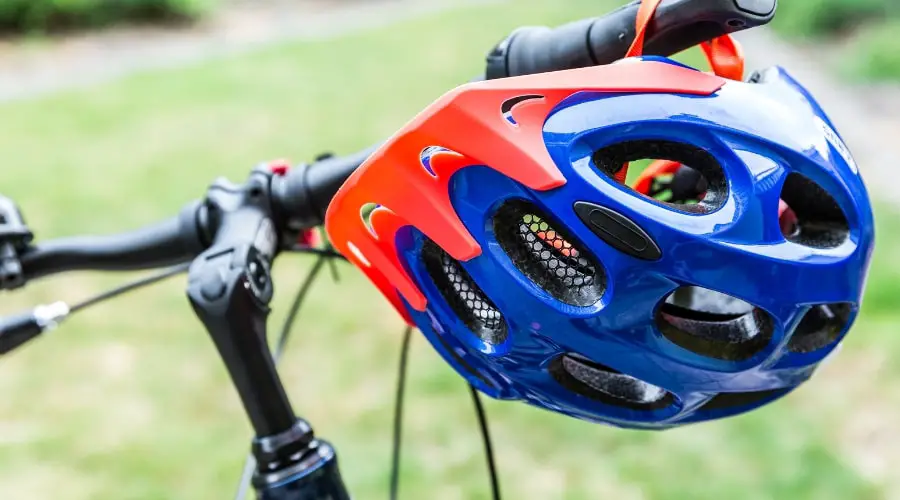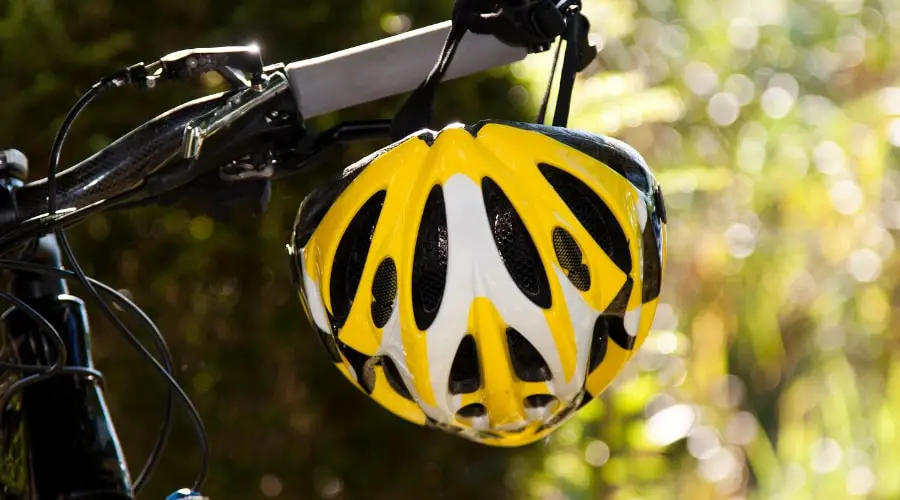Florida is a popular destination for outdoor enthusiasts, and biking is a favourite activity among locals and tourists alike. With this in mind, it’s important to understand the state’s bicycle helmet laws to ensure safety on the roads. In this article, we’ll explore who is required to wear a bicycle helmet in Florida, the reasons behind these laws, and the penalties for non-compliance.

Florida’s Bicycle Helmet Law
Florida has specific laws in place to regulate the use of bicycle helmets, with the aim of reducing head injuries and fatalities resulting from cycling accidents.
Why helmet laws exist
Helmet laws are designed to protect cyclists by reducing the risk of traumatic brain injuries, which are a leading cause of death and disability among cyclists. Wearing a helmet can significantly decrease the severity of head injuries, and these laws have been enacted to encourage responsible cycling behaviour.
The importance of helmets
Helmets provide a crucial layer of protection for cyclists in the event of an accident. They are designed to absorb and distribute the impact of a collision, reducing the force transferred to the brain. This helps to minimize the risk of serious head injuries, which can have life-long consequences.
Who must wear a helmet in Florida?
Florida’s helmet law is specific in its requirements for who must wear a helmet while cycling.
Age requirements
In Florida, bicycle riders and passengers under the age of 16 are required to wear a helmet that meets federal safety standards. This law applies to both residents and visitors, ensuring that all young cyclists are protected on the roads.
Exceptions to the rule
There are some exceptions to Florida’s helmet law. For example, helmets are not required for riders or passengers of tricycles or quadricycles if they have fully enclosed cabins and are equipped with safety belts. Additionally, riders on private property or in closed-course bicycle races are exempt from the helmet law.
Helmet safety standards
In order to comply with Florida’s bicycle helmet law, helmets must meet specific safety standards.
Selecting the right helmet
Helmets that meet the U.S. Consumer Product Safety Commission (CPSC) standards are considered compliant with Florida’s helmet law. When purchasing a helmet, look for a label or sticker indicating that it meets these standards. This ensures that the helmet has been tested for safety and is designed to provide adequate protection in the event of an accident.
Proper helmet fit
A helmet is only effective if it fits properly. It should sit level on your head, covering your forehead, and the straps should be snug but comfortable. Ensure the helmet doesn’t wobble or slide when you shake your head. A poorly fitted helmet may not provide the necessary protection during an accident, so take the time to find one that fits you well.
Penalties for not wearing a helmet
Failing to comply with Florida’s bicycle helmet law can result in penalties for both the rider and their parents or guardians.
Fines and Consequences
If a cyclist under the age of 16 is caught riding without a helmet, they may be issued a traffic citation, which carries a fine of up to $15. Alternatively, the cyclist may be required to attend a bicycle safety course. In either case, the citation can be dismissed once the individual provides proof of helmet ownership or completion of the safety course.
Parental responsibility
Parents and guardians are also responsible for ensuring that their children wear helmets while cycling. If a child is caught without a helmet, the parent or guardian may be issued a citation and held responsible for the fine or safety course requirement.

Benefits of wearing a helmet
Beyond the legal requirements, there are several important benefits to wearing a bicycle helmet.
Reduced risk of head injury
Wearing a helmet can significantly reduce the risk of head injuries in the event of an accident. Studies have shown that helmets can reduce the risk of head injury by up to 85%, making them an essential piece of safety equipment for cyclists of all ages.
Encouraging Safe Cycling Habits
By wearing a helmet, you are setting a positive example for other cyclists and promoting a culture of safety on the roads. This helps to create a safer environment for everyone, as cyclists who prioritize safety are more likely to be cautious and aware of their surroundings while riding.
FAQs:
1. What age group is required to wear a helmet in Florida?
In Florida, bicycle riders and passengers under the age of 16 are required to wear a helmet.
2. Are there any exceptions to Florida’s helmet law?
Yes, exceptions include riders on private property, in closed-course bicycle races, or riding tricycles or quadricycles with fully enclosed cabins and safety belts.
3. What safety standards should a helmet meet to be compliant with Florida’s law?
Helmets must meet the U.S. Consumer Product Safety Commission (CPSC) standards to be compliant with Florida’s helmet law.
4. What are the penalties for not wearing a helmet in Florida?
Cyclists under the age of 16 caught without a helmet may receive a traffic citation with a fine of up to $15 or be required to attend a bicycle safety course.
5. How does wearing a helmet benefit cyclists?
Wearing a helmet significantly reduces the risk of head injuries, promotes safe cycling habits, and contributes to a safer road environment for all users.
Conclusion
Florida’s bicycle helmet law requires riders and passengers under the age of 16 to wear a helmet that meets federal safety standards. This law is designed to protect young cyclists from the potentially devastating consequences of head injuries. By wearing a helmet and practising safe cycling habits, you can enjoy the many benefits of biking while minimizing the risk of injury.
Helmetslab is a website that focuses on providing in-depth reviews and information about different types of helmets, including motorcycle helmets and others helmets. I am writing a post with proper research on the info that helps helmet users.

